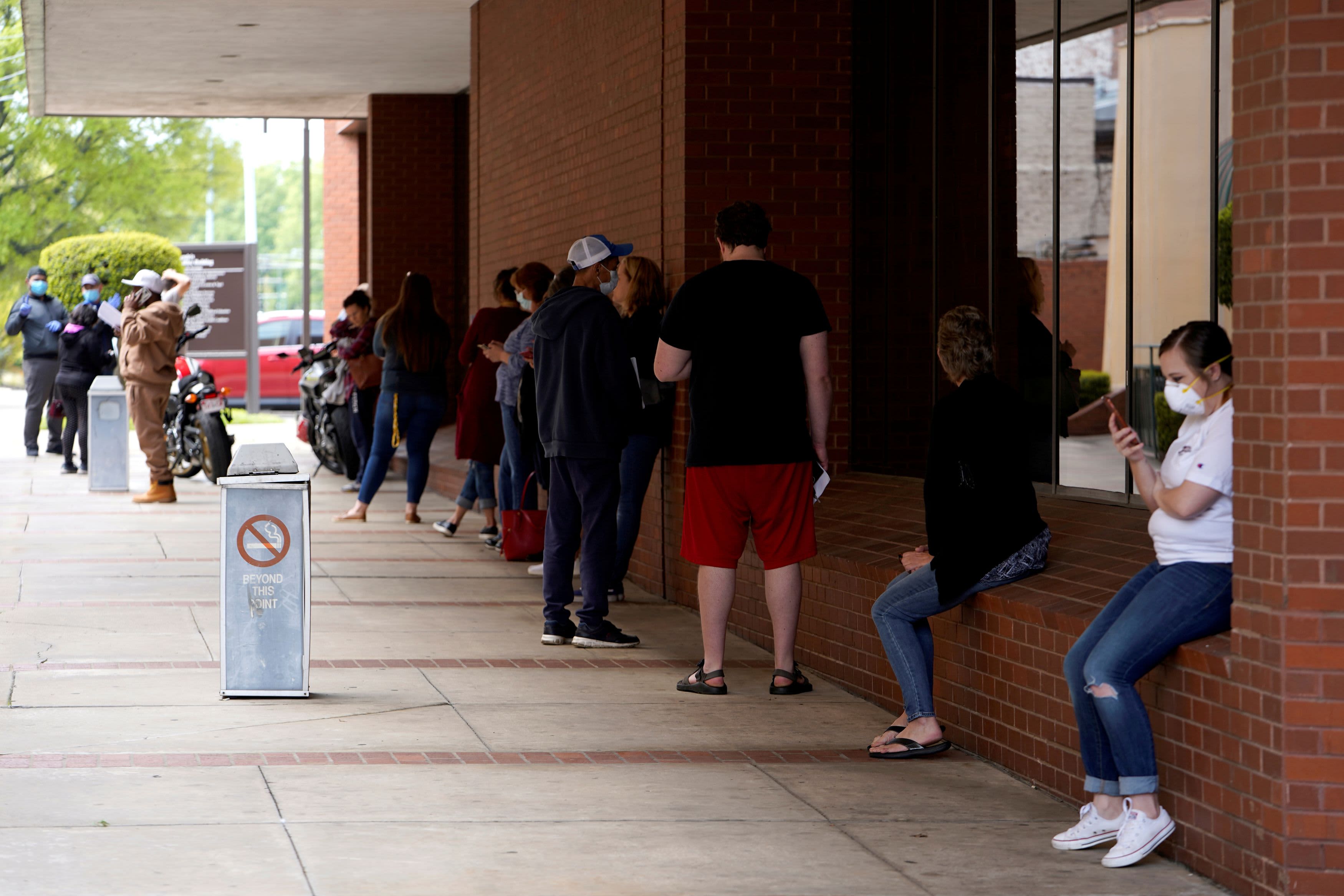Treasury Secretary Steven Mnuchin speaks during the daily briefing on the novel coronavirus, COVID-19, in the Brady Briefing Room at the White House on April 2, 2020, in Washington, DC.
Mandel Ngan | AFP | Getty Images
WASHINGTON — Treasury Secretary Steven Mnuchin acknowledged Sunday that the U.S. unemployment rate may have already reached 25% as the administration works to reopen the economy amid the coronavirus pandemic.
"This is no fault of American business, this is no fault of American workers, this is a result of a virus," Mnuchin told Chris Wallace during an interview on "Fox News Sunday." "The reported numbers are probably going to get worse before they get better," he said, adding that "next year is going to be a great year."
The real unemployment rate, which includes people who are not looking for work or are underemployed, already stands at 22.8%, according to the Bureau of Labor Statistics. Mnuchin acknowledged that the jobless rate may be even higher and stand at 25%, comparable to the Great Depression, when pressed on the issue by Wallace who pointed out that April's unemployment report stopped in the middle of the month.
In just over a month, the coronavirus has erased all job gains since the Great Recession, bringing the nation's decade-long economic growth streak to a grinding halt.
The U.S. economy lost an unprecedented 20.5 million jobs in April as the unemployment rate jumped to 14.7%, up from 4.4% in March, according to the monthly employment report, released Friday by the Department of Labor.
"These numbers impact real people. My numbers aren't rosy, what I said is you're going to have a very, very bad second quarter," Mnuchin said, adding that the United States could see "permanent economic damage" if the country does not reopen.
Earlier on Sunday, White House advisor Kevin Hassett told CNN's Jake Tapper that the U.S. unemployment rate could reach up to 20%.
"This is the biggest negative shock to an economy that we have ever seen in our lifetimes. It hit an economy that in January was about the strongest economy we'd ever seen," explained Hassett on "State of the Union."
"The fact though is, with all of the aggressive bipartisan action to toss maybe as much as $9 trillion at this sort of bridge to the other side, we see things like the jobs report on Friday, almost everybody who declared themselves unemployed said they expect to go back to work in six months," he added.


